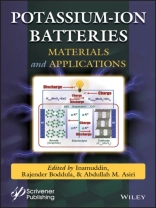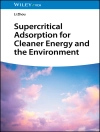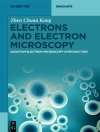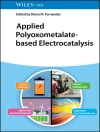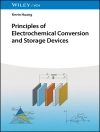Battery technology is constantly changing, and the concepts and applications of these changes are rapidly becoming increasingly more important as more and more industries and individuals continue to make ‘greener’ choices in their energy sources. As global dependence on fossil fuels slowly wanes, there is a heavier and heavier importance placed on cleaner power sources and methods for storing and transporting that power. Battery technology is a huge part of this global energy revolution.
Potassium-ion batteries were first introduced to the world for energy storage in 2004, over two decades after the invention of lithium-ion batteries. Potassium-ion (or ‘K-ion’) batteries have many advantages, including low cost, long cycle life, high energy density, safety, and reliability. Potassium-ion batteries are the potential alternative to lithium-ion batteries, fueling a new direction of energy storage research in many applications and across industries.
Potassium-ion Batteries: Materials and Applications explores the concepts, mechanisms, and applications of the next-generation energy technology of potassium-ion batteries. Also included is an in-depth overview of energy storage materials and electrolytes. This is the first book on this technology and serves as a reference guide for electrochemists, chemical engineers, students, research scholars, faculty, and R&D professionals who are working in electrochemistry, solid-state science, material science, ionics, power sources, and renewable energy storage fields.
关于作者
Inamuddin, Ph D, is an assistant professor at King Abdulaziz University, Jeddah, Saudi Arabia and is also an assistant professor in the Department of Applied Chemistry, Aligarh Muslim University, Aligarh, India. He has published about 150 research articles in various international scientific journals, 18 book chapters, and 60 edited books with multiple well-known publishers.
Rajender Boddula, Ph D, is currently working for the Chinese Academy of Sciences President’s International Fellowship Initiative (CAS-PIFI) at the National Center for Nanoscience and Technology (NCNST, Beijing). He has numerous honors, book chapters, and academic papers to his credit and is an editorial board member and a referee for several reputed international peer-reviewed journals.
Abdullah M. Asiri is the Head of the Chemistry Department at King Abdulaziz University and the founder and Director of the Center of Excellence for Advanced Materials Research (CEAMR). He holds multiple patents, has authored ten books, more than one thousand publications in international journals, and multiple book chapters.
